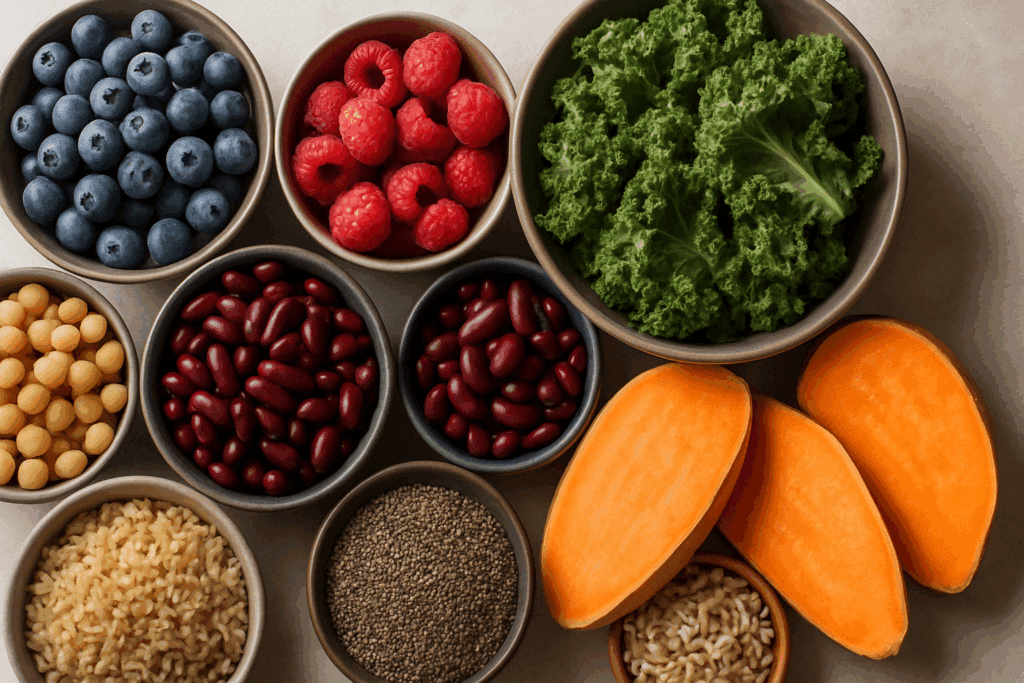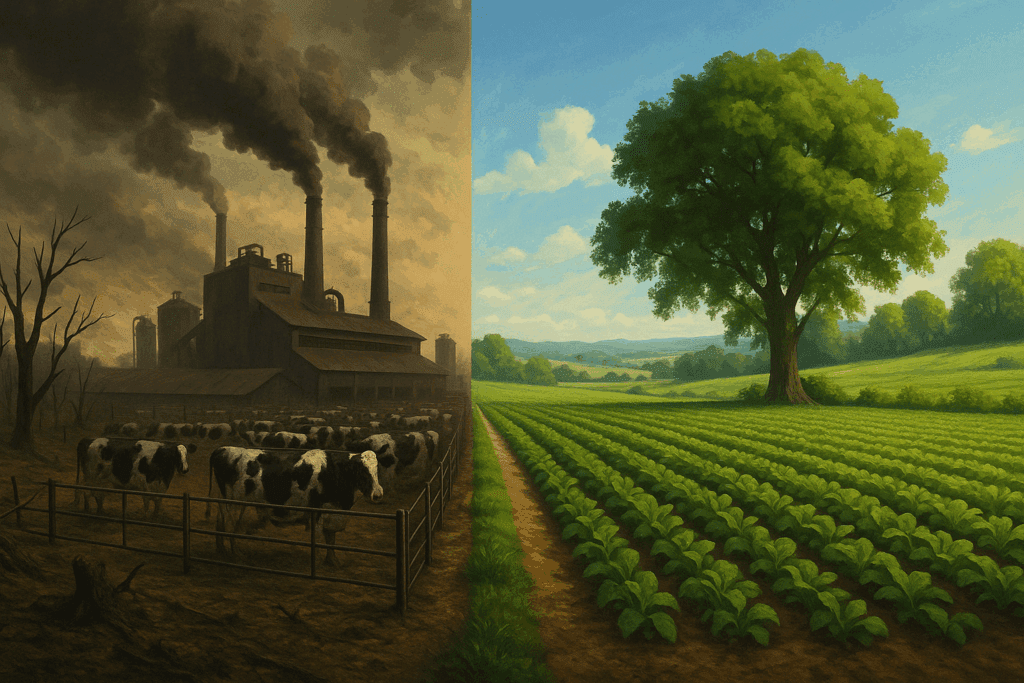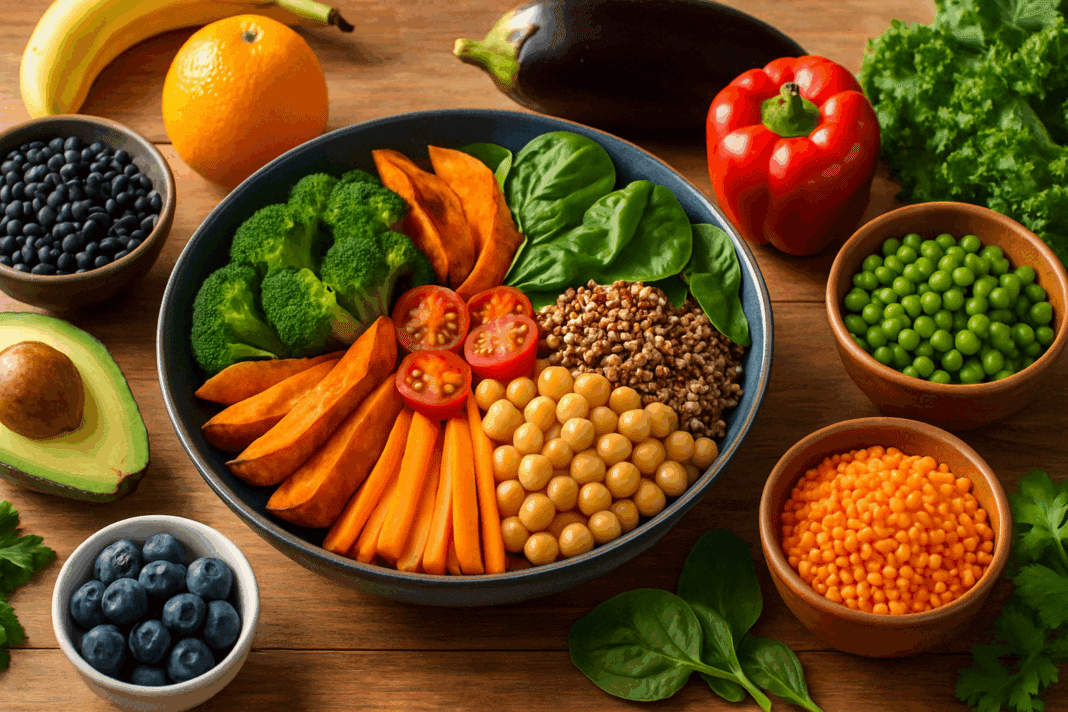Adopting a plant-based diet has become one of the most popular health and lifestyle trends in recent years. Influenced by ethical concerns, environmental awareness, and a desire for improved personal health, many individuals are choosing to explore the benefits of a vegan lifestyle. But despite the surge in interest, the decision to go vegan is not one that should be made lightly. Transitioning to a fully plant-based eating pattern has a complex array of benefits and potential drawbacks. In this comprehensive guide, we explore the pros and cons of veganism, providing evidence-based insights to help you make an informed choice that aligns with your personal health goals, ethical beliefs, and nutritional needs.
You may also like: Plant Based Diet vs Standard American Diet: What the Latest Studies Reveal About Long-Term Health Outcomes
Understanding the Foundations of a Vegan Diet
At its core, a vegan diet eliminates all animal-derived products. This includes meat, poultry, seafood, dairy, eggs, and even honey. Instead, it emphasizes whole plant foods such as fruits, vegetables, grains, legumes, nuts, and seeds. While this dietary pattern offers numerous nutritional advantages, it also requires careful planning to ensure adequacy in essential nutrients. One of the primary motivations behind the shift toward veganism is the growing body of research suggesting that a plant-based diet may support cardiovascular health, reduce inflammation, and promote longevity. However, these outcomes are highly dependent on the quality and diversity of the foods consumed.
A well-planned vegan diet can offer all the nutrients your body needs to function optimally, but relying heavily on ultra-processed vegan foods can lead to deficiencies and undermine potential health benefits. It’s crucial to differentiate between a whole-food plant-based diet and one that simply excludes animal products but is high in refined carbohydrates, sugars, and sodium. The former is generally associated with positive health outcomes, while the latter may increase the risk of metabolic dysfunction and chronic disease. Understanding this distinction is key to assessing the real-world implications of the vegan diet pros and cons.
Nutritional Benefits of a Whole-Food Plant-Based Diet
One of the most widely discussed advantages of adopting a vegan diet is its potential to improve markers of overall health. Research consistently links plant-based diets to lower levels of LDL cholesterol, reduced blood pressure, and decreased risk of heart disease. The high intake of fiber, antioxidants, and phytonutrients found in fruits, vegetables, and legumes supports these cardiovascular benefits by promoting endothelial function and reducing arterial inflammation.
Additionally, many people report improved digestive health when they transition to a vegan lifestyle. Fiber-rich foods help regulate bowel movements, nourish the gut microbiota, and may protect against conditions like diverticulosis and colorectal cancer. For individuals managing type 2 diabetes or insulin resistance, the plant-based approach can improve glycemic control and lower HbA1c levels, particularly when the diet prioritizes low-glycemic whole foods over processed vegan substitutes.
The plant based diet pros and cons also extend to weight management. Numerous clinical trials have demonstrated that individuals following a whole-food vegan diet often experience greater weight loss compared to those on omnivorous or even vegetarian diets. This is due in part to the lower caloric density and higher satiety index of plant-based meals. With proper planning and attention to macronutrient balance, a vegan diet can support sustainable weight loss without the need for extreme caloric restriction or fad dieting.

Potential Nutritional Drawbacks and How to Avoid Them
While the advantages of a vegan lifestyle are considerable, it’s equally important to understand the potential disadvantages of a plant based diet. One of the most common concerns involves nutrient deficiencies. Vitamins B12 and D, iron, zinc, calcium, omega-3 fatty acids, and high-quality protein are often more difficult to obtain in adequate amounts without animal products. Without proper supplementation or food fortification, individuals may be at risk for anemia, bone demineralization, compromised immune function, and reduced cognitive performance.
Vitamin B12, for instance, is essential for red blood cell formation and neurological function, yet it is naturally found only in animal-derived foods. Vegan-friendly B12 supplements or fortified foods are therefore non-negotiable for those committed to a strict vegan lifestyle. Similarly, while plant foods do contain iron, the non-heme form is less bioavailable than heme iron found in meat, making it important to combine iron-rich plant foods with vitamin C sources to enhance absorption.
Another challenge is maintaining sufficient protein intake, especially for those with higher physiological demands such as athletes, older adults, or individuals recovering from illness. While legumes, tofu, tempeh, and quinoa provide quality plant proteins, they must be consumed in appropriate quantities and combinations to meet daily requirements. Understanding these plant based diet drawbacks can help individuals proactively mitigate potential health risks and maintain long-term success with a vegan lifestyle.

Environmental and Ethical Implications
Beyond personal health, many individuals are drawn to veganism because of its ethical and environmental implications. The industrial livestock sector is a major contributor to greenhouse gas emissions, deforestation, and freshwater depletion. By shifting to a plant-based diet, individuals can significantly reduce their ecological footprint. In fact, research from the University of Oxford suggests that a vegan diet could reduce food-related greenhouse gas emissions by up to 70%.
Ethically, the avoidance of animal products aligns with concerns about animal welfare and the humane treatment of sentient beings. This moral stance forms a strong foundation for many who adopt veganism as a long-term commitment rather than a temporary diet. However, it’s important to recognize that the environmental and ethical pros cons vegan arguments are nuanced. While plant-based agriculture is generally less resource-intensive, certain crops—such as almonds and avocados—can have significant environmental costs related to water usage and monoculture farming practices.
Thus, adopting a vegan lifestyle with environmental and ethical consciousness in mind requires more than simply avoiding meat and dairy. It involves informed choices about food sourcing, sustainable farming practices, and a broader understanding of how agricultural systems impact ecosystems. This level of awareness deepens the commitment to a truly sustainable and ethically grounded plant-based lifestyle.
Social and Lifestyle Considerations
Adopting a vegan lifestyle also affects social dynamics and personal routines in ways that are often overlooked. Dining out, attending social gatherings, or traveling can become more complicated when vegan-friendly options are limited. This can create feelings of isolation or frustration, especially during the early phases of dietary transition. Learning to navigate these social scenarios is an essential component of long-term success with a plant-based lifestyle.
Moreover, food is deeply tied to culture and identity. For individuals from cultural backgrounds where animal products play a central role in traditional dishes, transitioning to a vegan diet may require creative adaptation and openness to culinary innovation. Thankfully, the increasing availability of plant-based alternatives and global recipes has made it easier to maintain cultural food traditions while adhering to vegan principles.
On a practical level, preparing balanced vegan meals often involves more planning and cooking than an omnivorous diet. While some find this empowering, others may struggle with the time commitment or culinary learning curve. Understanding both the pros and cons of veganism in the context of daily living allows for a more realistic perspective on what to expect when making this lifestyle change.

Economic and Accessibility Factors
While some argue that a vegan diet can be cost-effective, particularly when based on whole foods like beans, rice, and seasonal vegetables, others point out the high price of specialty vegan products. Meat substitutes, plant-based dairy alternatives, and convenience foods often carry premium price tags, which can add up quickly for individuals or families on tight budgets.
Furthermore, access to fresh, nutrient-dense plant foods can vary widely depending on geographic location, socioeconomic status, and the availability of grocery stores or farmers markets. In food deserts—areas with limited access to affordable, nutritious foods—adopting a healthy vegan diet may not be feasible without significant community or policy support.
Addressing these economic and accessibility issues is critical to broadening the reach and inclusivity of the plant-based movement. Educational initiatives, urban farming projects, and government subsidies for fresh produce could help make a whole-food plant-based lifestyle more accessible to a wider population. When weighing the plant based diet pros and cons, affordability and accessibility must be considered alongside health and ethical dimensions.
Psychological and Emotional Impacts
The transition to a vegan diet can also have notable psychological effects. For many, the shift brings a sense of empowerment and alignment with personal values, which can enhance mental well-being and foster a deeper connection to one’s food choices. The act of consciously selecting nourishing, cruelty-free foods may even become a form of self-care and mindfulness.
However, for some individuals, especially those with a history of disordered eating or obsessive tendencies, strict dietary rules may exacerbate anxiety around food. The pressure to maintain dietary purity or adhere perfectly to vegan principles can lead to guilt, shame, or social withdrawal. In such cases, it’s essential to approach the vegan lifestyle with flexibility and self-compassion, recognizing that perfection is neither realistic nor necessary.
Supportive communities, online forums, and professional counseling can provide guidance and emotional support for those navigating the psychological challenges of dietary change. Balancing the psychological pros and cons of vegan lifestyle choices can help individuals maintain a healthy relationship with food and a positive self-image.
A Balanced Perspective: Integrating Science and Personal Values
The decision to adopt a vegan diet is deeply personal and should be informed by both scientific evidence and individual values. While the health benefits of a plant-based lifestyle are well-documented, the disadvantages of plant based diet approaches should not be underestimated. Careful planning, education, and a willingness to adapt are essential for long-term success.
When evaluating vegan diet pros and cons, it’s helpful to remember that no single dietary pattern is universally optimal. Genetic variability, lifestyle factors, and health status all influence how individuals respond to specific foods. For some, a predominantly plant-based diet with occasional animal products may offer the best balance of sustainability, nutrition, and practicality. For others, a strict vegan lifestyle may be a perfect fit, provided it is approached with intention and mindfulness.
Ultimately, the goal is not dietary perfection but nutritional adequacy, ethical consistency, and personal well-being. Whether you’re considering a full transition or simply looking to incorporate more plant-based meals into your routine, being informed about the pros and cons of veganism is the first step toward making empowered, health-supportive decisions.

Frequently Asked Questions: Plant-Based Diet Pros and Cons
1. Can a plant-based diet support high-performance athletes, or is it limiting in competitive sports?
A plant-based diet can support high-level athletic performance, but it requires strategic planning to meet increased demands for energy, protein, and micronutrients. Endurance athletes and strength trainers can benefit from faster recovery due to the anti-inflammatory effects of phytonutrients in plant foods. However, one of the often-overlooked plant based diet drawbacks is the challenge of obtaining sufficient complete proteins without careful meal composition. Combining legumes with grains and ensuring adequate intake of branched-chain amino acids is essential for muscle repair and growth. While some elite athletes thrive on vegan diets, others may find it more practical to incorporate targeted supplementation, particularly for nutrients like B12, iron, and creatine.
2. What are some lesser-known psychological challenges of going vegan?
One of the more subtle disadvantages of plant based diet transitions lies in the psychological domain, especially for individuals with perfectionist tendencies. The pressure to adhere strictly to veganism can sometimes lead to orthorexic behaviors—an unhealthy obsession with eating the “right” way. Social isolation may occur when individuals feel out of place at events with limited vegan options, adding emotional strain to an otherwise health-driven lifestyle. Understanding the pros cons vegan diets entails considering the mental load that strict dietary identity may carry. Cultivating flexibility and self-compassion is vital for maintaining a positive, long-term relationship with food.
3. Is it possible to raise children on a vegan diet without compromising their development?
Yes, but it requires exceptional diligence and awareness from caregivers. Children have higher relative needs for nutrients like calcium, protein, iron, and DHA—many of which are found more abundantly or more bioavailable in animal products. While a well-planned vegan diet can support healthy development, the pros and cons of veganism for children hinge on micronutrient intake. Pediatricians often recommend supplements or fortified foods to ensure optimal growth. Parents must monitor growth milestones closely and seek regular nutritional assessments to prevent deficiencies during critical stages of development.
4. How does a plant-based diet affect hormone balance, particularly in women?
Hormone balance is a nuanced subject, and diet plays a key role. Some studies suggest that a high-fiber, low-fat vegan diet can help regulate estrogen levels, potentially benefiting women with estrogen-dominant conditions like endometriosis or PCOS. However, certain disadvantages of plant based diet choices include the risk of inadequate fat intake, which may lower progesterone production and disrupt menstrual cycles in some women. Including healthy plant-based fats like flaxseeds, walnuts, and avocados is essential for hormone synthesis. Monitoring energy availability and menstrual health is especially important for women engaging in high levels of physical activity.
5. How does long-term veganism influence gut health and microbiome diversity?
A fiber-rich vegan diet can promote microbial diversity and increase the abundance of short-chain fatty acid-producing bacteria, which is beneficial for gut health. However, over time, exclusion of certain fermented dairy products and naturally occurring probiotics may reduce microbial strains found in omnivores. Exploring the plant based diet pros and cons from a gut perspective reveals that the benefits largely depend on diversity within plant sources. Consuming a wide variety of legumes, vegetables, and fermented plant foods like kimchi and tempeh helps maintain microbial balance. A limited, repetitive vegan diet can lead to reduced microbial richness, which is why variety is key.
6. Are there emerging technologies or innovations making veganism more accessible or nutritionally complete?
Yes, the field of plant-based nutrition is evolving rapidly. New technologies such as precision fermentation and lab-grown proteins are addressing the nutritional gaps historically cited as plant based diet drawbacks. Fortified vegan cheeses, algae-based omega-3 supplements, and meat analogues with enhanced amino acid profiles are closing the gap between ethical choices and nutritional adequacy. Companies are also developing personalized nutrition apps to help individuals meet their daily requirements on a vegan diet. These innovations are reshaping how we interpret the pros cons vegan lifestyle, providing options that didn’t exist a decade ago.
7. What are the economic implications of a long-term vegan diet in different socioeconomic contexts?
The economic aspect of veganism is highly context-dependent. In high-income regions, a whole-food vegan diet can be relatively affordable if centered around staples like lentils, rice, and seasonal produce. However, one of the critical disadvantages of plant based diet adoption in lower-income communities or food deserts is the lack of access to affordable, fresh plant foods. Additionally, specialty vegan products tend to be more expensive and less accessible, creating a barrier to equitable dietary change. Evaluating the pros and cons of vegan lifestyle from a socioeconomic perspective emphasizes the need for public health strategies and food justice policies to support inclusivity.
8. Does a vegan diet impact cognitive function or mental clarity over time?
Cognitive performance is closely tied to key nutrients like omega-3 fatty acids, B12, and iron—all of which are commonly deficient in poorly planned vegan diets. Long-term veganism may support mental clarity when these nutrients are adequately sourced through algae-based supplements or fortified foods. However, ignoring these needs may contribute to fatigue, memory issues, or mood disturbances—less commonly discussed plant based diet drawbacks. Maintaining cognitive resilience requires consistent intake of brain-supportive nutrients, ideally monitored through periodic blood tests. The vegan diet pros and cons extend to mental health, reinforcing the importance of evidence-based supplementation.
9. How does the environmental impact of veganism compare when considering highly processed plant-based foods?
While veganism generally has a lower carbon footprint than omnivorous diets, this advantage diminishes when the diet leans heavily on ultra-processed foods. The production of vegan junk food can involve significant energy use, packaging waste, and long supply chains. Thus, one of the hidden pros and cons of vegan lifestyle patterns is that not all plant-based eating is inherently sustainable. Choosing locally grown, minimally processed whole foods helps align dietary habits with environmental ethics. A mindful approach ensures the environmental benefits are not offset by the unintended consequences of consumerism.
10. What strategies help ensure long-term success and satisfaction with a vegan diet?
Sustainability in a vegan diet requires more than nutritional adequacy; it also demands emotional and culinary satisfaction. Investing time in learning diverse cooking techniques, experimenting with global cuisines, and maintaining social support can transform the experience from restrictive to enriching. Acknowledging the plant based diet pros and cons from the outset prepares individuals to overcome challenges without becoming disillusioned. Incorporating flexibility—such as being open to occasional supplementation or exploring flexitarian principles—can make veganism more adaptable and resilient. Long-term success thrives where personal values, nutrition science, and lifestyle logistics meet in harmony.

Final Thoughts: Reflecting on the Plant-Based Diet Pros and Cons
As interest in plant-based nutrition continues to grow, so does the importance of clear, balanced, and evidence-based information. Understanding the plant based diet pros and cons empowers individuals to make choices rooted in both science and personal conviction. While the advantages of a vegan diet include improved heart health, better weight management, and a smaller environmental footprint, these benefits are contingent upon a thoughtful, well-rounded approach to nutrition.
Equally important are the disadvantages of plant based diet patterns, particularly when they are poorly planned or overly reliant on processed foods. Nutritional deficiencies, social challenges, economic barriers, and emotional complexities all warrant careful consideration. By integrating practical strategies, ethical awareness, and a strong foundation in nutritional science, individuals can navigate the pros and cons of vegan lifestyle choices with confidence and clarity.
Whether you’re contemplating a full transition or simply experimenting with Meatless Mondays, the key to success lies in balance, preparation, and ongoing education. The journey toward a healthier, more sustainable way of eating is not about rigid rules, but about cultivating habits that support your body, align with your values, and contribute positively to the world around you. Embrace the process with curiosity and compassion, and you’ll be well on your way to making informed, nourishing choices for the long term.
Was this article helpful? Don’t let it stop with you. Share it right now with someone who needs to see it—whether it’s a friend, a colleague, or your whole network. And if staying ahead on this topic matters to you, subscribe to this publication for the most up-to-date information. You’ll get the latest insights delivered straight to you—no searching, no missing out.
Further Reading:
What is a plant-based diet and why should you try it?
6 Science-Based Health Benefits of Eating Vegan
Disclaimer
The information contained in this article is provided for general informational purposes only and is not intended to serve as medical, legal, or professional advice. While NewsHealthWatch strives to present accurate, up-to-date, and reliable content, no warranty or guarantee, expressed or implied, is made regarding the completeness, accuracy, or adequacy of the information provided. Readers are strongly advised to seek the guidance of a qualified healthcare provider or other relevant professionals before acting on any information contained in this article. NewsHealthWatch, its authors, editors, and contributors expressly disclaim any liability for any damages, losses, or consequences arising directly or indirectly from the use, interpretation, or reliance on any information presented herein. The views and opinions expressed in this article are those of the author(s) and do not necessarily reflect the official policies or positions of NewsHealthWatch.

